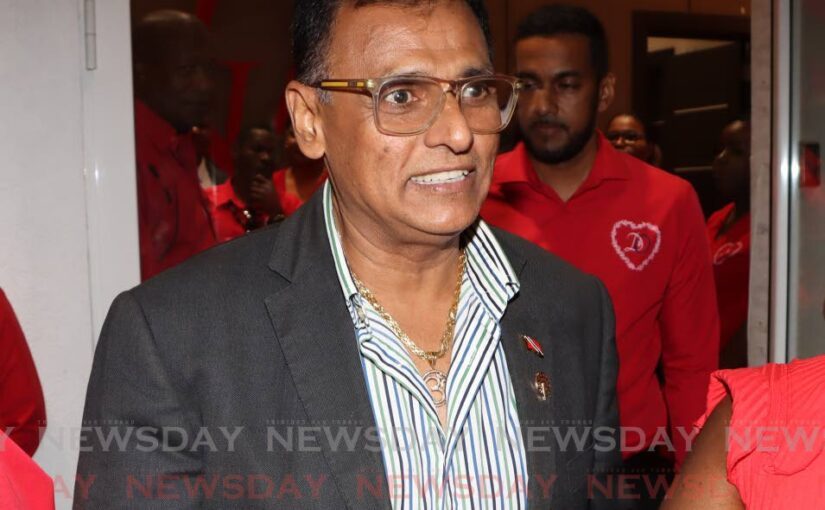Is there a political party that will take up the challenge of an economy based on nature? Dr Anjani Ganase asks. THE dialogue of elections in...
Vous n'êtes pas connecté
- English
- Français
- عربي
- Español
- Deutsch
- Português
- русский язык
- Català
- Italiano
- Nederlands, Vlaams
- Norsk
- فارسی
- বাংলা
- اردو
- Azərbaycan dili
- Bahasa Indonesia
- Հայերեն
- Ελληνικά
- Bosanski jezik
- українська мова
- Íslenska
- Türkmen, Түркмен
- Türkçe
- Shqip
- Eesti keel
- magyar
- Қазақ тілі
- Kalaallisut ; kalaallit oqaasii
- Lietuvių kalba
- Latviešu valoda
- македонски јазик
- Монгол
- Bahasa Melayu ; بهاس ملايو
- ဗမာစာ
- Slovenščina
- тоҷикӣ ; toğikī ; تاجیکی
- ไทย
- O'zbek ; Ўзбек ; أۇزبېك
- Tiếng Việt
- ភាសាខ្មែរ
- རྫོང་ཁ
- Soomaaliga ; af Soomaali
Rubriques :
 Maroc - EURASIAREVIEW.COM - A la une - 25/Mar 16:34
Maroc - EURASIAREVIEW.COM - A la une - 25/Mar 16:34
Fragmented Knowledge System And Planetary Crises – OpEd
"The world is not a solid continent of facts sprinkled by a few lakes of uncertainties, but a vast ocean of uncertainties speckled with a few islands of calibrated and stabilized forms," Bruno Latour, a distinguished French philosopher, sociologist, and anthropologist, said in his book Reassembling the Social (2005). Then he went on to add, "Do we really know that little? Paradoxically, this 'astronomical' ignorance explains a lot of things." Latour vividly depicts the limited scope of our knowledge system compared to the vastness and depth of what we don't know about the restless world. His phrase 'astronomical ignorance' highlights the dichotomy that our human systems remain detached from planetary systems, even though our survival depends entirely on them. Latour critiques our perspective on humanity's place on planet Earth and how we interact with the Earth's systems to promote growth and prosperity without foreseeing the potential consequences. He challenges the conventional notion of scientific knowledge, which is often seen as entirely objective and separate from social and cultural influences. Instead, he argues that social processes have a significant impact on shaping our scientific knowledge. This knowledge is co-constructed through a network of both human and non-human actors. Latour's 'Actor-Network Theory' explains how both human and non-human elements form a network of influence and interaction. The world is more than just a collection of human actions. It's a complex web where various elements like machines, other living beings, natural systems, institutions, and technologies also 'act' on us. But we often overlook their influence on us. The growth of our knowledge system is remarkable. However, it is increasingly fragmented into siloed disciplines and sub-disciplines. Such fragmented knowledge has created a tunnel vision of reality in many areas, where experts in one field may not be aware of or consider the implications of their work in other areas. As a result, our understanding of the interconnectedness of reality and the whole system is far from perfect. The evidence is piling up. Over the decades, despite countless international commitments to sustainability challenges, we have yet to come to grips with the existential planetary threats we face. Time is running out. We can no longer ignore the harsh reality that our planet Earth, home to over 8 billion people and still growing, is moving past its peak to sustain our modern industrial civilization. Why have we been driven to this very point? It is mainly due to our tendency to cling to outdated models, beliefs, policies, and institutions, even as the nature and scope of the problems we face shift in a constantly changing world. This resistance to change stems from factors such as path dependency, vested interests, inertia, and cognitive dissonance. Path dependency refers to the tendency to continue down a particular path due to past decisions, even if it is no longer the best course of action. Vested interests and inertia lead to the continuation of the existing systems, with a few minor changes here and there over the years. Cognitive dissonance makes it difficult to accept new information that contradicts existing beliefs. In fact, all these elements are stumbling blocks for societies to adapt to the new realities of our time. We need to adopt adaptive governance. The adaptive governance model refers to developing policy frameworks and institutions at all levels that can continually learn, evaluate, experiment, and evolve in response to changing circumstances. This approach, with its focus on flexibility and responsiveness, is crucial in dealing with the uncertainties and complexities of the modern world, particularly in the context of sustainability and climate change. The limits of our understanding, together with the fragmented nature of knowledge, call for an ethical framework that underlines care and responsibility. As Hans Jonas argues in his book The Imperative of Responsibility (1984), we should act with caution and foresight, prioritizing all our actions that ensure the viability of both present and future generations. It calls for governance structures that focus on planetary stewardship rather than short-term economic gains and quick-fix political agendas. It is high time to break down the structure of silo governance and integrate ecological responsibility into the very foundation of our economic and political systems. Indeed, it would pave the way for humanity to live in harmony with Earth's systems, maintaining the delicate balance that sustains the web of life. It is essential to respect the land, oceans, and the atmosphere from which we derive everything we need. But, indeed, it's a tall order considering the bleak circumstances we find ourselves in without wisdom and foresight. For instance, we have already violated six of the nine planetary boundaries identified by Johan Rockstrom and his colleagues. These boundaries include climate change, biodiversity loss, land use changes, biogeochemical flows, freshwater use, and the introduction of novel entities. Furthermore, we are on the verge of breaching the seventh planetary boundary - ocean acidification. One thing is sure. Unless we undertake dramatic fundamental transformative measures decisively, the likelihood of the foundation of our global society gradually crumbling under the weight of the cascading impacts of the transgressed planetary boundaries is now greater than ever before. We can no longer ignore the eventual collapse of our modern industrial civilization.
Articles similaires
Visa restrictions, politics of blame
THE EDITOR: As TT grapples with the UK’s decision to impose visa restrictions on our citizens, it is disheartening to witness the discourse devolve...
Gut microbiota research ushers in a new era of health and sustainability
Imagine a world where we fully understand how the foods we eat transform our health, thanks to the tiniest residents of our bodies—gut microbes....
Technology has shaped human knowledge for centuries. Generative AI is set to transform it yet again
Where would we be without knowledge? Everything from the building of spaceships to the development of new therapies has come about through the...
Hold PNM accountable for failures
THE EDITOR: The People’s National Movement (PNM) has governed this nation for far too long with incompetence, arrogance, and blatant disregard for...
The secret to real unity
Dara E Healy This is Trinidad and Tobago, yuh better know This is we island and we will fight to keep its soul Out of the darkness and the violence...
The secret to real unity
Dara E Healy This is Trinidad and Tobago, yuh better know This is we island and we will fight to keep its soul Out of the darkness and the violence...
Technology has shaped human knowledge for centuries. Generative AI is set to transform it yet again
Where would we be without knowledge? Everything from the building of spaceships to the development of new therapies has come about through the...
System Administrator / Server Technician – Gauteng Gauteng
Systems Administrator / Server TechnicianElevate your IT career with cutting-edge technology!R 360,000 – R 528,000 per annumJoin a leading provider...
System Administrator / Server Technician
Systems Administrator / Server TechnicianElevate your IT career with cutting-edge technology!R 360,000 – R 528,000 per annumJoin a leading provider...
Les derniers communiqués
-
Adobe Brings Conversational AI to Trillions of PDFs with the New AI Assistant in Reader and Acrobat
Adobe - 21/02/2024
-
Laura Frigenti takes the Helm as Chief Executive Officer of the Global Partnership for Education
Global Partnership for Education - 05/12/2022





